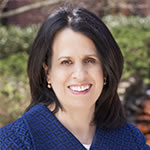 We made an amazing discovery in 2013. While most companies are trying to optimize their product, which is a buzzword for subbing less toxic ingredients, we realized we had actually accomplished this on our own and were way ahead of the game. Now, we’re getting hundreds of our products declared through the International Living Future Institute and are sharing all ingredients with anyone who wants to know.
We made an amazing discovery in 2013. While most companies are trying to optimize their product, which is a buzzword for subbing less toxic ingredients, we realized we had actually accomplished this on our own and were way ahead of the game. Now, we’re getting hundreds of our products declared through the International Living Future Institute and are sharing all ingredients with anyone who wants to know.
The biggest thing I’m learning? Customers change. Ten years ago, they might not have cared so much about what goes into a product, but now they do. They’re familiar with nutrition labels and are thinking about what they bring into their homes.
We’re at an important crossroads as a community. My background as a geologist has taught me that the Earth is our life-support system, and we rely on it for everything we need for survival. The same elements that are in our body are in the Earth, but we’ve caused abrupt changes in the balance of things.
When my mother went to first grade, she had never heard English before. She ended up being the valedictorian of her high school. Whenever I asked my mother for help with my homework, she would say, “Figure it out on your own.” I learned to appreciate that. It taught me to be self-reliant and confident in my abilities to decipher complicated problems and look for solutions when others may have just given up.
Some of us don’t yet understand the importance of involving more diverse voices. That’s a missed opportunity.
Collaboration is more important than ever before. Internally, I’m leading a cross-functional team that is made up of employees from all over the company. We call it our Sustainability Council. We’re involved in delivering the message of the Living Building Challenge across the country through special events we host. We’re also looking at building a manufacturer’s coalition around sustainability in the coming years.
I keep reading that we don’t have enough young people interested in science, and that’s a shame. It’s so vital. For new people coming up, I tell them it’s really helpful to have a technical foundation like science or engineering before they move into a communications or policy function because it helps to have that fundamental understanding of natural systems and how the Earth works.
Read up on the rest of our 10 Most Powerful Women in Sustainability here.

